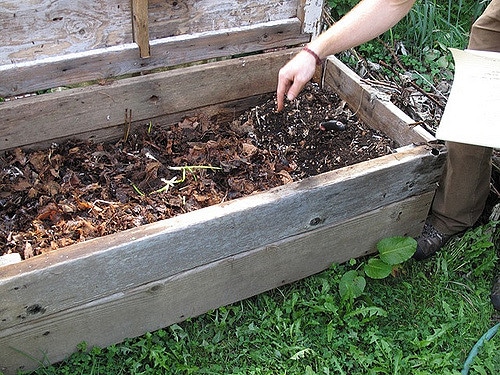
What is a worm farmer, and why on earth would you want to be one? Because worms can eat your garbage and produce natural fertilizer for your garden!
Redworms can be used as little composters, and the process is referred to as vermicomposting. Those who practice vermicomposting are referred to as worm farmers, and the worms are referred to as their herd, just as if they were little cows.
Instead of discarding food scraps in the trash or adding them to an outdoor compost pile, scraps can be recycled and turned into nutritious soil for plants with the help of worms.
Redworms are the worm species most suitable for vermicomposting. Ordinary night crawlers that you may find in your garden are beneficial for the garden, but they are not suitable for a vermicompost herd. Redworms can be purchased online from commercial growers, and they can also be found at the local bait shop.
Vermicomposting is done within a bin, either indoors or outdoors. When the worms are kept in a bin, they can’t crawl away to join their friends in the wild. You can construct your own worm bin or purchase one that is ready-made.
If you make your own bin, drill several half-inch holes in the bottom and sides of the bin to provide aeration and drainage and keep a tray below the bin to catch any moisture that may drip out. Then add shredded paper to the bin for the worm bedding and moisten it. Keep a lid on the bin so the worms can’t crawl out the top.
Next, add the worms and give them some food. Add any food scraps you have available, but do not add any meat or fish scraps. Your worms are vegetarians, and they won’t like greasy or oily food either. One pound of worms will eat about four pounds of food scraps per week and turn those scraps into soil.
In 3-4 months, it will be time to harvest the vermicompost. Simply push all the material to one side of the box and add new bedding to the other side, along with some food scraps. The worms will migrate into the new bedding to get their food, and you can scoop out the finished vermicompost and mix it into your garden soil.
Mike McGroarty is the owner of McGroarty Enterprises and the author of several books. You can visit his website at Freeplants.com and read his blog at Mikesbackyardnursery.com.
Related Articles & Free Email Newsletter
How to Have Great Compost in 3 Months
Vermicompost Affects on Plants




Comment here